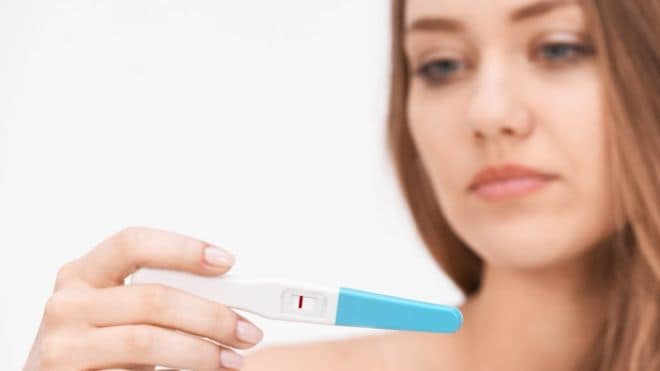
A common cause of female infertility – polycystic ovary syndrome (PCOS) – may be due to a hormonal imbalance before birth, researchers have found.
Researchers have been able to cure it in mice, and a clinical trial in human women is due to begin later this year, the New Scientist reports.
PCOS affects up to one in five women worldwide, it says.
It affects how a woman’s ovaries work – symptoms include irregular periods and difficulty getting pregnant.
“It’s by far the most common hormonal condition affecting women of reproductive age, but it hasn’t received a lot of attention,” Robert Norman at the University of Adelaide in Australia told the New Scientist.
What is PCOS?
Symptoms include:
- irregular periods or no periods, which means ovaries don’t regularly release eggs
- difficulty getting pregnant
- excessive hair growth caused by excess testosterone
- weight gain
- oily skin and acne
More than half of the women affected don’t have any symptoms
Researchers at the French National Institute of Health and Medical Research (Inserm) have found that the syndrome may be triggered before birth by excess exposure in the womb to a hormone called anti-Müllerian hormone (AMH).
They found pregnant women with PCOS have 30% higher levels of the hormone than normal.
As the syndrome is known to run in families, they wanted to test the idea that the imbalance in pregnancy might induce the same condition in daughters.
They injected AMH into pregnant mice, and as the offsprings grew up, found that they had many PCOS symptoms, including infrequent ovulation and delays in falling pregnant.
The excess hormone seemed to overstimulate a set of brain cells that raises the level of testosterone.
After treatment with an IVF drug used to control women’s hormones, cetrorelix, the mice stopped showing PCOS symptoms.
“It could be an attractive strategy to restore ovulation and eventually increase the pregnancy rate in these women,” Paolo Giacobini, whose group conducted the research at Inserm, told the New Scientist.























